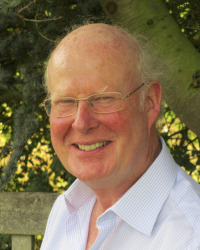Enhancing performance
Few would disagree that the desire to enhance performance is a very positive aspiration for both individuals and for organisations who will always want to maximise the productivity of their staff. Interestingly, a brief search for 'enhancing performance' on the internet reveals high on the rankings performance-enhancing substances! We hear much about this form of enhancement after major sporting events or as news headlines involving ‘doping’ among athletes.
Notwithstanding this, most programmes seeking to enhance performance concentrate on recognising and reinforcing good performance by the development of knowledge and skills, improved work environment as well as rewards (and punishment). Such ‘external’ motivators for improving performance are both logical and helpful. However, the well known ‘coaching equation’ describes performance as:
PERFORMANCE = POTENTIAL minus INTERFERENCE
This suggests that some of the most important ‘interferences’ that prevent people reaching their full potential are to do with an array of behavioural phenomena taking the form of physical actions or observable emotions; largely driven by thoughts and feelings.
Many in the world of psychology and sociology believe that because behaviours are ‘hard-wired’ into our early emotional development they can only be changed effectively through addressing an individual’s emotional makeup.
Eric Berne expounded in his theory of Transactional Analysis that children adopt one of four “Life Positions” in their early formative years as a basic survival strategy. The “Position” adopted would then go on to form the basis of their “Scripts” and in turn, unconsciously underpin their behaviour in adulthood.
However, Berne went on to explain that when we become adults we have an option of making full use of grown-up resources and that when we do so these decisions are ‘script-free' or autonomous. However, we need to understand our (unconscious) life plan in order to challenge and unpick it so that we have a better opportunity to change behaviour and maximise performance in whatever endeavour we choose. When making an autonomous decision we are dealing with the here-and-now reality as the adult.
This autonomous decision making with or without therapy can be carried out when self-awareness is raised to a point where an individual’s mind is ‘open’ to change and the choice to do so is made and carried out.

Find a coach dealing with Personal development
All coaches are verified professionals



